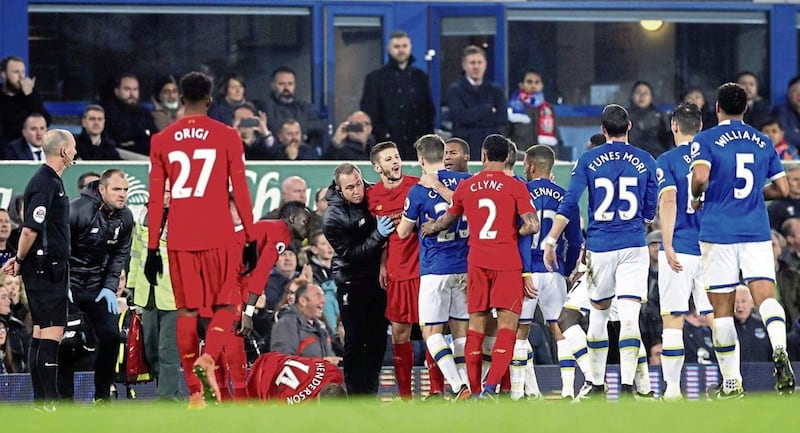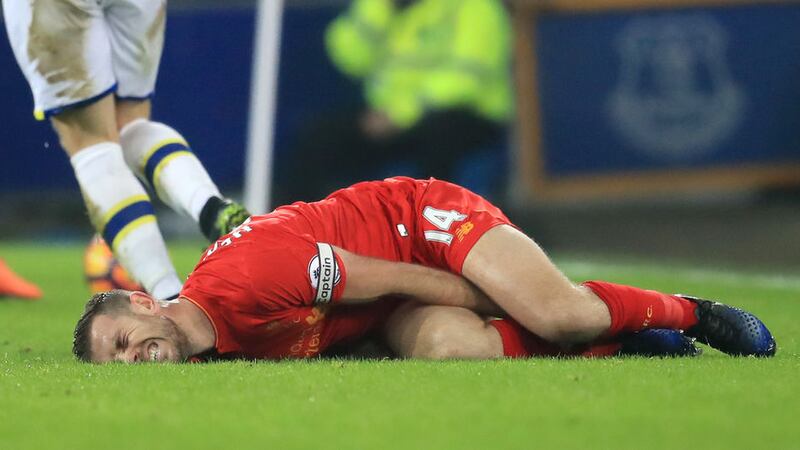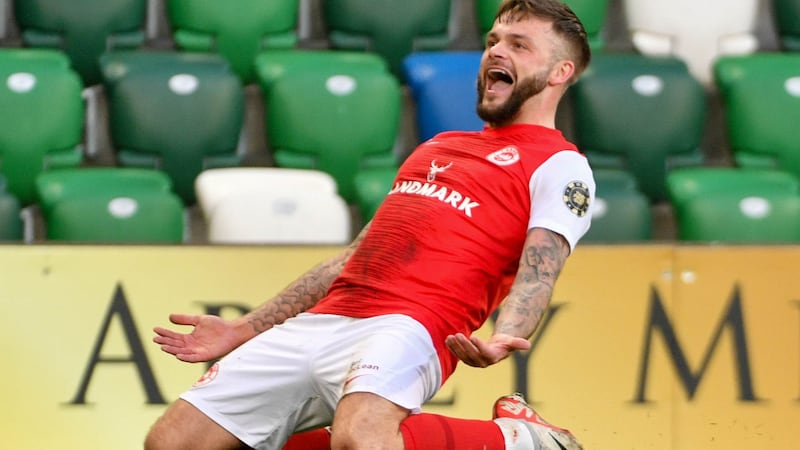ALTHOUGH I had many weaknesses on a soccer pitch, an aversion to tackling wasn’t one of them.
I rarely played in defence, not too often in midfield, but I still loved to put in a tackle. Such was my competitive instinct in that regard, the Sunday World’s Stephen Looney - whose surname aptly summed up his general approach to the game - expressed shock at how I was getting stuck in during one ‘media’ match.
Admittedly, it was supposed to be a charity game and most of the opposition were older than us - but it was a team of Northern Ireland politicians and we were somehow losing at the time, so I felt fully justified in putting in a few hard questions to my opponents.
I always encouraged team-mates to tackle too. A female friend remains mortified at the memory of her tackling another girl in a mixed indoor soccer match at school, resulting in the recipient ending up landing on her chin and splitting it open - however, at the time and ever since, I reassured the tackler she had won the ball cleanly and had done absolutely nothing wrong.
All this is recounted to indicate I’m no shrinking violet when it comes to tackling, not one of those fancy dan Spaniards who think boots should only be used for passing a ball. Yet, I never, ever tried to endanger an opponent.
Unfortunately, it seems the same cannot be said of some current professionals. Fortunately, Liverpool won the Merseyside derby on Monday night, so I can’t be accused of sour grapes for criticising the appalling foul by Everton’s Ross Barkley on Reds’ skipper Jordan Henderson. That over-the-top challenge landed right in the ‘that could have broken his leg’ category.
My wife had wondered recently if referees are waiting for a player to actually get his leg broken before they will send such a culprit off. Manchester United defender Marcus Rojo - the clue’s in the surname, refs - somehow escaped red cards for two recent two-footed lunges at opponents. Of course, Everton and Manchester United players are far from the only culprits - every club has players who tackle dangerously at times.
It’s time referees took such challenges seriously. It will be interesting to see if Leicester City’s appeal against the weekend red card handed to Jamie Vardy is successful.
Sure, the striker was, perhaps, a little harshly dealt with, given he was partly shoved into the collision by Stoke’s Glen Johnson, but Vardy was still jumping in with both feet off the ground, which cannot be tolerated.
You should still absolutely be allowed to slide in on opponents, but that requires at least one boot to be on the ground. The lower the challenge, the less likely it is to do any damage.
In any case, tackling certainly should not be tolerated with studs showing - and definitely not those sort of challenges where the tackler catches a rival well above the ankle, often putting serious weight behind the contact.
It’s understandable Barkley would want to get stuck in, given that Everton had won only one of the previous 19 derbies and not beaten Liverpool for six years, a winless streak of 12 matches.
But the ball had clearly gone by the time Barkley connected with Henderson, his foul looked deliberate and cynical. Still, the game is a contact sport and should remain so.

Picture by PA Liverpool and Everton players were at loggerheads in the aftermath of Barkley's challenge
Picture by PA
Much as I admire Xabi Alonso as a man and a midfielder, I’ve always disagreed with the comments he made a few years ago about tackling. The former Liverpool and Real Madrid man stated: “Tackling is not really a quality, it’s more something you are forced to resort to when you don’t have the ball.”
Well, with all due respect, duh. There will always be times in every match when every team is without the ball - even Bayern Munich, Barcelona and Spain.
Sure, you can try to win the ball back by intercepting passes, but it’s also entirely legitimate, and sensible, to do so by tackling - fairly, of course.
Alonso went on to talk dismissively about youth players who cited tackling as one of their strengths and commented: “I can’t get it into my head that football development would educate tackling as a quality.”
Why not? Why shouldn’t players be taught to tackle properly? As in the GAA or rugby, even basketball, that’s the key point - being taught proper tackling technique so that you regain possession without conceding a foul. GAA tackling is supposed to be done with the upper body/arms/hands, so it’s far less likely to cause pain or injury to opponents.
Of course, there was, for too long, a culture of needless aggression in British/Irish soccer, but ‘putting the foot in’ can also be a positive, there’s an art in timing a challenge well.
The high priest of possession football Manchester City manager Pep Guardiola was defended by a surprising person after his recent assertion that he doesn’t coach tackling. West Bromwich Albion boss Tony Pulis, who’s a master at getting teams well-drilled defensively, said one would expect players to have learned how to tackle at academies.
That’s a fair enough point, but if a player in his late teens or early 20s does not have good tackling technique then what is wrong with making efforts to improve that?
That will take time, though. In the meantime, the authorities need to end the ludicrous convention that yellow cards cannot be changed, either by being overturned or upgraded. Incorrect red cards can be wiped out, but not wrong yellows, even though they tot up towards suspensions.
Players are retrospectively punished for red card offences that are not seen by the match officials, so why not punish them for red card offences that are not punished properly by match officials?
Referees should be big enough and honest enough to look back at an incident and admit ‘Yes, I should have sent him off for that, not just booked him’. You would be no more undermining referees than is already happening.
The attitude from referees should be the same as players’ approach to tackling - hard but fair. If the tackle is fair, fair enough. If it’s not, punish the culprit hard, even if that punishment comes even later than the tackle.









